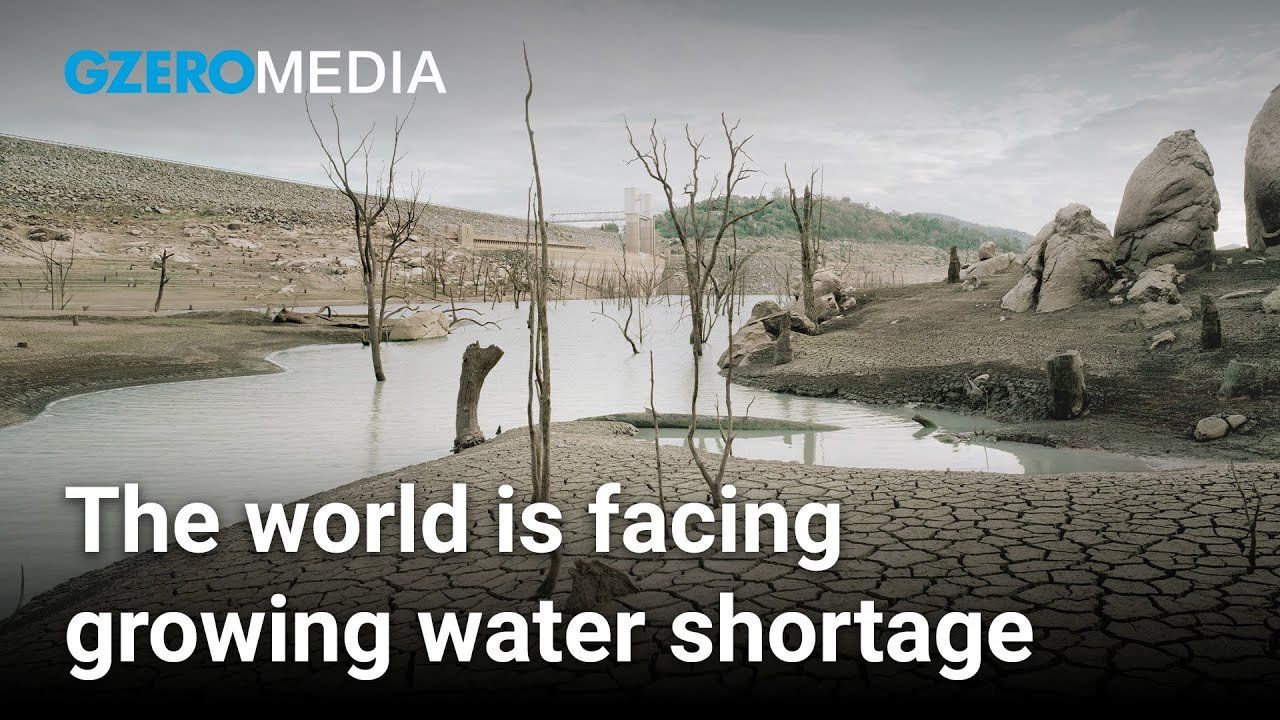Over 70% of the Earth's surface is covered in water, but less than 0.02% is fresh water in lakes and rivers. An even smaller fraction of that fresh surface water is safe for humans to consume and farm. Still, according to Brian Richter, President of Sustainable Waters, humans are drawing too heavily on those resources without allowing replenishment.
What's worse, climate change is threatening to exacerbate the problem by drying out some already overstressed water sources, like the Colorado river.
"By the year 2050, we could have between 20 and 30% less water in that river system because of climate warming," he said during a GZERO Live event organized by the Sustainability Leaders Council, a partnership between Eurasia Group, GZERO Media, and Suntory. Watch what he says to find out why he's still hopeful humans will adapt.
Watch the full livestream conversation: The global water crisis and the path to a sustainable future
- COP28’s challenge: growing problems, shrinking credibility ›
- The global water crisis and the path to a sustainable future - GZERO ... ›
- Water will become very political in 2023, says Eurasia Group analyst ›
- The uncomfortable truth about water scarcity ›
- Will the world come to grips with its water crisis in 2023? ›
- Water scarcity can sink a city, says expert Tanvi Nagpal - GZERO Media ›
More For You
Prime Minister Narendra Modi, with President of the European Council António Luís Santos da Costa, and President of the European Commission Ursula von der Leyen, at Hyderabad House, in New Delhi, India, on Jan. 27, 2026.
On Tuesday, the world’s largest single market and the world’s most populous country cinched a deal that will slash or reduce tariffs on the vast majority of the products they trade.
Most Popular
Five forces that shaped 2025
What’s Good Wednesdays™, January 28, 2026
Canadian Prime Minister Mark Carney has repeatedly tussled with US President Donald Trump, whereas Mexican President Claudia Sheinbaum has tried to placate him. The discrepancy raises questions about the best way to approach the US leader.
10,000: The number of Hamas officers that the militant group reportedly wants to incorporate into the US-backed Palestinian administration for Gaza, in the form of a police force.
Walmart is investing $350 billion in US manufacturing. Over two-thirds of the products Walmart buys are made, grown, or assembled in America, like healthy dried fruit from The Ugly Co. The sustainable fruit is sourced directly from fourth-generation farmers in Farmersville, California, and delivered to your neighborhood Walmart shelves. Discover how Walmart's investment is supporting communities and fueling jobs across the nation.
